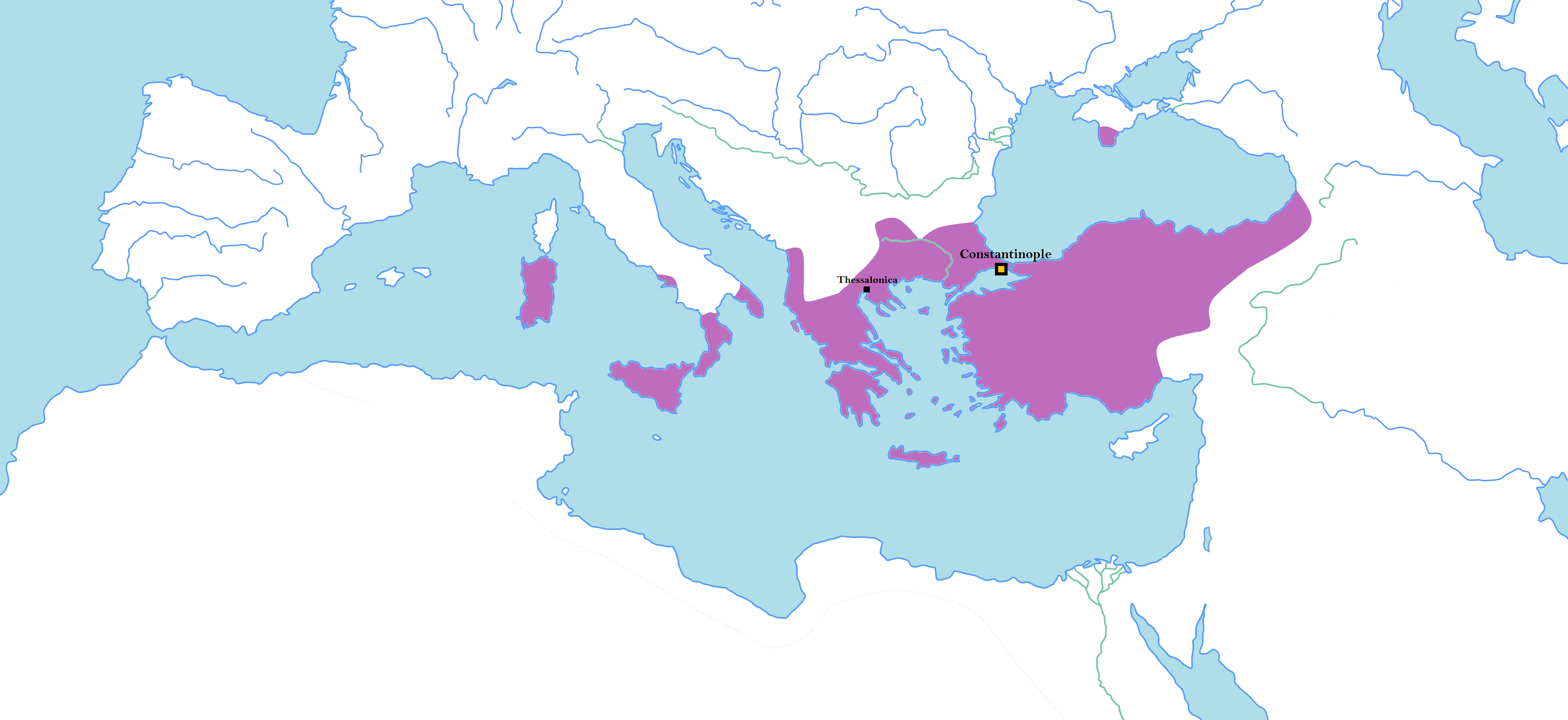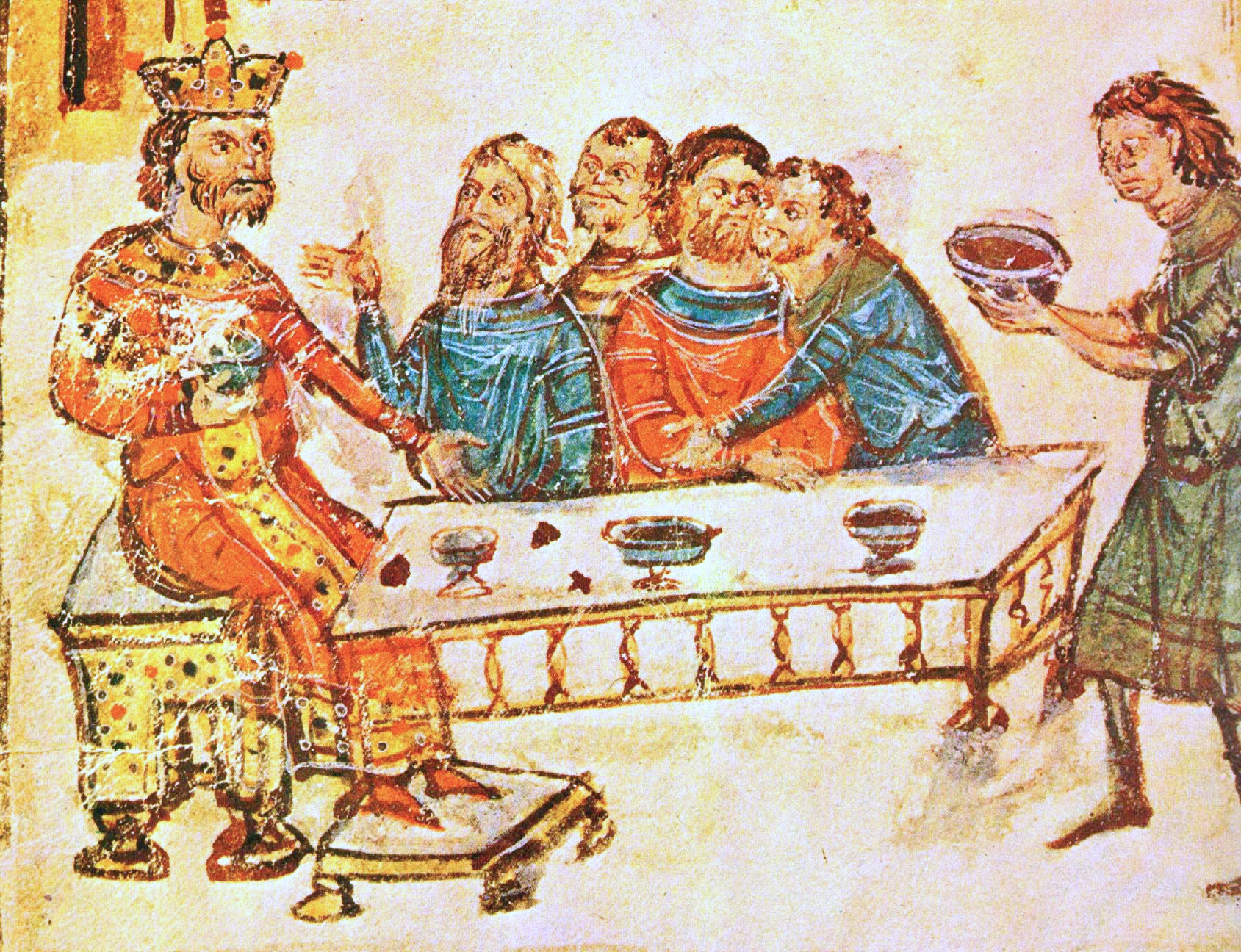|
800s (decade)
The 800s decade ran from January 1, 800, to December 31, 809. Significant people * Al-Amin * Charlemagne * Haroun al-Raschid * Jayavarman II * Nicephorus I * Krum * Du Mu Du Mu ( zh, c=杜牧, p=Dù Mù, w=Tu4 Mu4; 803–852) was a Chinese calligrapher, poet, and politician who lived during the late Tang dynasty. His courtesy name was Muzhi (), and art name Fanchuan (). He is best known for his lyrical and roma ... References Sources * * * * * * * * {{DEFAULTSORT:800s ... [...More Info...] [...Related Items...] OR: [Wikipedia] [Google] [Baidu] |
Al-Amin
Abū Mūsā Muḥammad bin Hārūn al-Amīn (; April 787 – 24/25 September 813), better known by just his laqab of al-Amīn (), was the sixth Abbasid caliph from 809 to 813. Al-Amin succeeded his father, Harun al-Rashid, in 809 and ruled until he was deposed and killed in 813, during the civil war by his half-brother, al-Ma'mun. Early life and the issue of succession Muhammad, the future al-Amin, was born in April 787 to the Abbasid caliph Harun al-Rashid () and Zubayda, herself descended from the second Abbasid caliph, al-Mansur (). Muhammad had an elder half-brother, Abdallah, the future al-Ma'mun (), who had been born in September 786. However, Abdallah's mother was a Persian slave concubine, and his pure Abbasid lineage gave Muhammad seniority over his half-brother. Indeed, he was the only Abbasid caliph to claim such descent. Already in 792, Harun had Muhammad receive the oath of allegiance ('' bay'ah'') with the name of ''al-Amīn'' ("The Trustworthy"), effectively ... [...More Info...] [...Related Items...] OR: [Wikipedia] [Google] [Baidu] |
Charlemagne
Charlemagne ( ; 2 April 748 – 28 January 814) was List of Frankish kings, King of the Franks from 768, List of kings of the Lombards, King of the Lombards from 774, and Holy Roman Emperor, Emperor of what is now known as the Carolingian Empire from 800, holding these titles until his death in 814. He united most of Western Europe, Western and Central Europe, and was the first recognised emperor to rule from the west after the fall of the Western Roman Empire approximately three centuries earlier. Charlemagne's reign was marked by political and social changes that had lasting influence on Europe throughout the Middle Ages. A member of the Frankish Carolingian dynasty, Charlemagne was the eldest son of Pepin the Short and Bertrada of Laon. With his brother, Carloman I, he became king of the Franks in 768 following Pepin's death and became the sole ruler three years later. Charlemagne continued his father's policy of protecting the papacy and became its chief defender, remo ... [...More Info...] [...Related Items...] OR: [Wikipedia] [Google] [Baidu] |
Haroun Al-Raschid
Abū Jaʿfar Hārūn ibn Muḥammad ar-Rāshīd (), or simply Hārūn ibn al-Mahdī (; or 766 – 24 March 809), famously known as Hārūn al-Rāshīd (), was the fifth Abbasid caliph of the Abbasid Caliphate, reigning from September 786 until his death in March 809. His reign is traditionally regarded to be the beginning of the Islamic Golden Age. His epithet ''al-Rashid'' translates to "the Just", "the Upright", or "the Rightly-Guided". Harun established the legendary library Bayt al-Hikma ("House of Wisdom") in Baghdad in present-day Iraq, and during his rule Baghdad began to flourish as a world center of knowledge, culture and trade. During his rule, the family of Barmakids, which played a deciding role in establishing the Abbasid Caliphate, declined gradually. In 796, he moved his court and government to Raqqa in present-day Syria. Domestically, Harun pursued policies similar to those of his father Al-Mahdi. He released many of the Umayyads and 'Alids his brother Al-Had ... [...More Info...] [...Related Items...] OR: [Wikipedia] [Google] [Baidu] |
Jayavarman II
Jayavarman II (; – 850, reigned –850) was a Khmer prince who founded and became the ruler of the Khmer Empire (Cambodia) after unifying the Khmer civilization. The Khmer Empire was the dominant civilization in mainland Southeast Asia from the 9th century until the mid-15th century. Jayavarman II was a powerful Khmer king who declared independence from a polity inscriptions named "Java", which most probably refers to the island of Java in the Indonesian archipelago. Jayavarman II founded many capitals such as Mahendraparvata, Indrapura, Amarendrapura, and Hariharalaya. Before Jayavarman II came to power, there was much fighting among local overlords who ruled different parts of Cambodia. The most well known opposition were the Shailendra Kings. In 781, Jayavarman II took action by claiming independence on the land of Chenla. By starting off with small weak kingdoms, he built himself up from there eventually leading to the Khmer Empire. No inscriptions by Jayavarman II have ... [...More Info...] [...Related Items...] OR: [Wikipedia] [Google] [Baidu] |
Nicephorus I
Nikephoros I (; 750 – 26 July 811), also known as Nicephorus I, was Byzantine emperor from 802 to 811. He was General Logothete (finance minister) under Empress Irene, but later overthrew her to seize the throne for himself. Prior to becoming emperor, he was sometimes referred to as "the Logothete" () and "Genikos" or "Genicus" (), in recognition of his previous role as General Logothete. During his reign, Nikephoros engaged in military campaigns against both the Arabs and the Bulgarians, although the outcomes were varied. While leading an invasion into Bulgaria, he suffered a defeat and was killed at the Battle of Pliska. Background According to several sources outside the Byzantine context, such as Michael the Syrian, al-Tabari, and Mas'udi, there is a tradition that suggests Nikephoros had Ghassanid Arab origins and that he descended from the final Ghassanid ruler Jabala ibn al-Ayham. Al-Tabari assets that he obtained this information from Byzantine sources, althoug ... [...More Info...] [...Related Items...] OR: [Wikipedia] [Google] [Baidu] |
Krum
Krum (, ), often referred to as Krum the Fearsome () was the Khan of Bulgaria from sometime between 796 and 803 until his death in 814. During his reign the Bulgarian territory doubled in size, spreading from the middle Danube to the Dnieper and from Odrin to the Tatra Mountains. His able and energetic rule brought law and order to Bulgaria and developed the rudiments of state organization. Biography Origins Krum was a Bulgar chieftain from Pannonia. His family background and the surroundings of his accession are unknown. It has been speculated that Krum might have been a descendant of Khan Kubrat through his son Kuber. The Bulgar name Krum comes from the Old Turkic ''qurum'' and means "ruler". Establishment of new borders Around 805, Krum defeated the Avar Khaganate to destroy the remainder of the Avars and to restore Bulgar authority in Ongal again, the traditional Bulgar name for the area north of the Danube across the Carpathians covering Transylvania and along t ... [...More Info...] [...Related Items...] OR: [Wikipedia] [Google] [Baidu] |
Du Mu
Du Mu ( zh, c=杜牧, p=Dù Mù, w=Tu4 Mu4; 803–852) was a Chinese calligrapher, poet, and politician who lived during the late Tang dynasty. His courtesy name was Muzhi (), and art name Fanchuan (). He is best known for his lyrical and romantic quatrains. Regarded as a major poet during a golden age of Chinese poetry, his name is often mentioned together with that of another renowned Late Tang poet, Li Shangyin, as the "Little Li-Du" (), in contrast to the "Great Li-Du": Li Bai and Du Fu. Among his influences were Du Fu, Li Bai, Han Yu and Liu Zongyuan. Biography Du Mu was born in the Tang capital Chang'an (modern Xi'an) into an elite family, the Jingzhao Du clan, whose fortunes were declining. His grandfather was Du You, a minister at the Tang court and the compiler of the Tang Dynasty encyclopedia ''Tongdian''. He passed the '' jinshi'' ("Presented Scholar") level of the imperial civil service examination in 828 at the age of 25, and began his career as a bureaucr ... [...More Info...] [...Related Items...] OR: [Wikipedia] [Google] [Baidu] |



